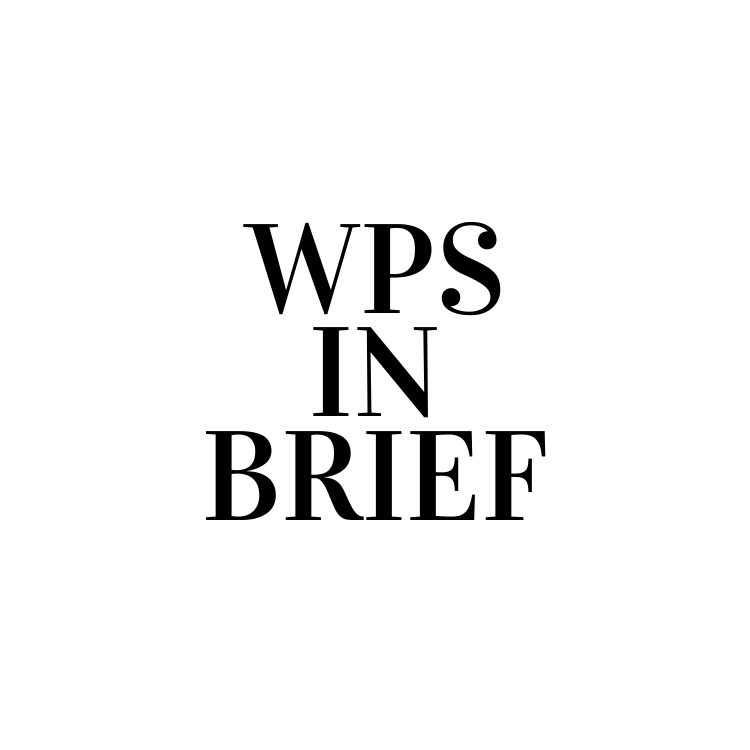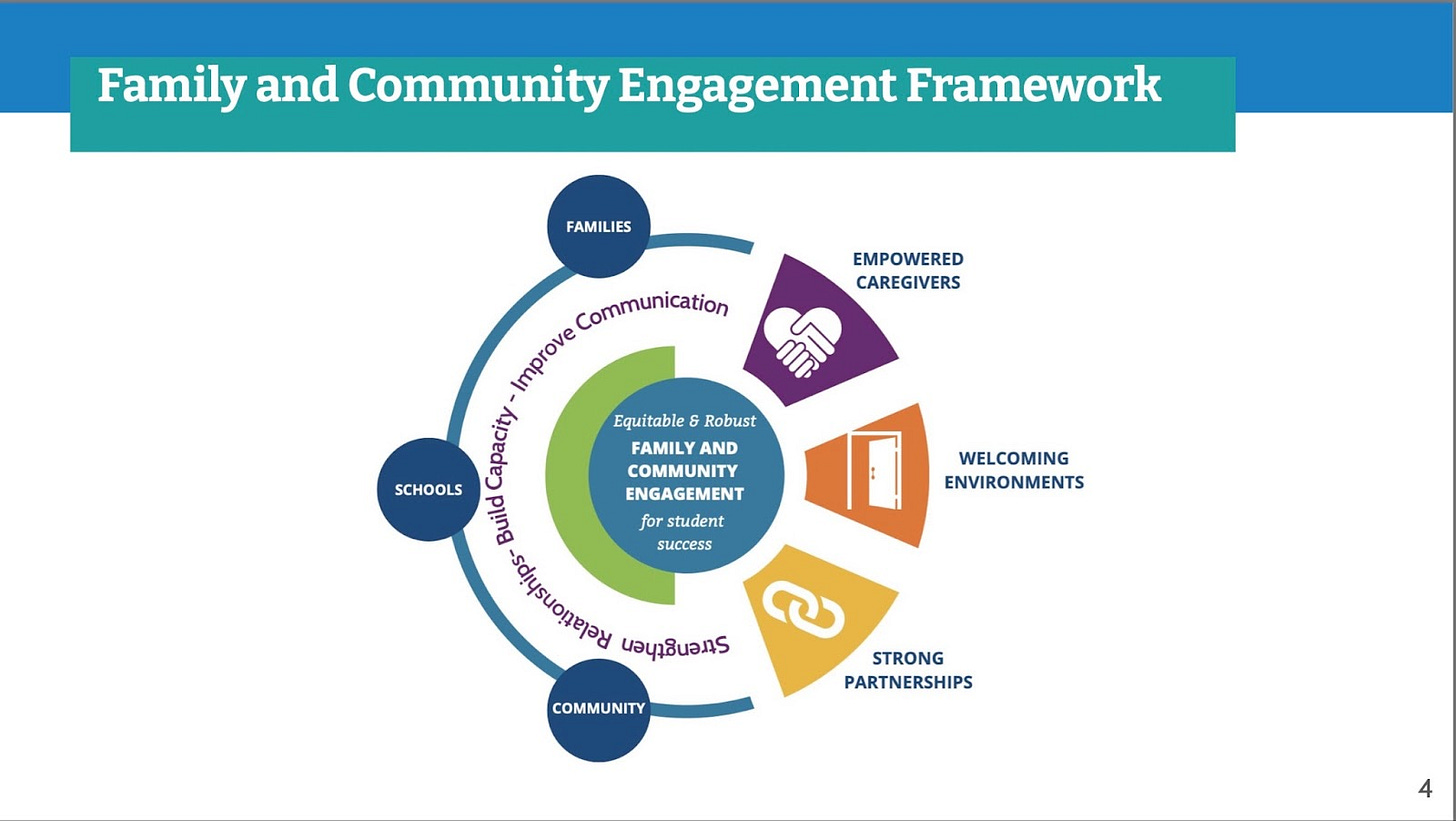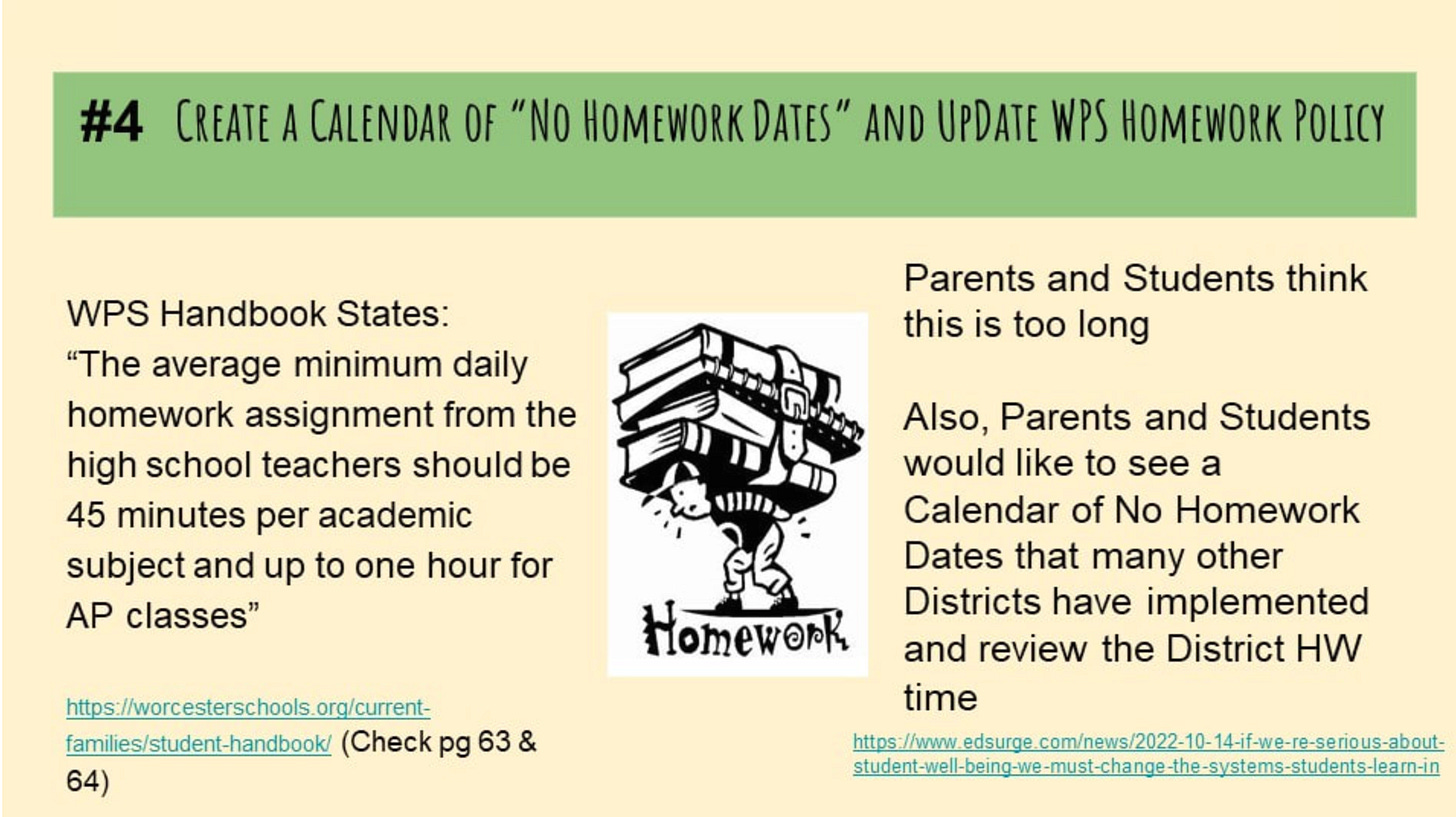WPS in Brief: March 2025
Culturally responsive pedagogy, family and community engagement, special education
This column is proudly brought to you by all the people who pay for Worcester Sucks to continue existing. You won’t find better coverage of the Worcester public schools anywhere. It’s free to read but not free to produce.
Please consider helping us keep the coverage up with a paid subscription! —Bill
Welcome to the 26th issue of WPS in Brief. This month covers key topics from three school committee meetings and one standing committee meeting. The Finance, Operations and Governance Subcommittee meeting was cancelled for the second month in a row.
Before we start, just a reminder that it’s budget season and it is the most important thing you can pay attention to if you care about schools. Wish it was a shorter walk radius for secondary schools? Want to have smaller classes? Wish all elementary schools had an after school program? It all comes down to how the school committee decides to allocate the budget. And as the superintendent has said, we can fund anything, but we can’t fund everything. For the details of the preliminary budget, read last month’s brief or if you want more nitty gritty watch this Worcester Education Collaborative Forum. The current budget items school committee members have proposed are adding back building substitute positions (McCullough), hiring certified librarians (Roy), hiring student employees (16+) for the summer (McCullough), hiring athletic trainers (McCullough), and increasing special education staff (Binienda). Email school committee members your priorities.
And I guess it should go without saying that all that will go out the window depending on the status of federal funding. WPS gets $52.3 million a year from the federal government, which completely funds student nutrition, head start, and entitlement grants. That money supports 460 jobs and is 6.5% of the budget. If all of it were to be cut, Worcester couldn’t make that up. The state could not make that up. Forget the continuous cycles of budget cuts since the eighties, federal funding cuts would test us in a way we have never been tested before. How are we going to feed kids? How will we provide early childhood education to the most marginalized families? How will students get their services? How will we keep our schools going? It’s overwhelming to think about.
In the end, whether we like it or not, all we can rely on in Worcester is each other and the community we have created. Every day, in our roles as public school parents and educators, we interact with people who make different choices for their families and who may have different values. We share our frustrations, about teaching and parenting, about the state of the city and the world. We have hard conversations, and even though we may have different solutions in mind, we try to find common ground. Because when our kids are classmates, teammates, or friends, it’s hard to villainize and hate each other for our views; being in community reminds us of each other’s humanity. And as we face many unknowns at the federal level, the most important thing we can do right now as a community is keep each other’s humanity in focus. Let’s remind our leaders and electeds of that, too.
Ok let’s dive in:
Culturally Responsive Pedagogy.
The report of the superintendent for the February 27 school committee meeting covered “culturally responsive pedagogy,” a strength-based, student-centered approach to teaching that recognizes and leverages the knowledge students bring from their experiences. Dr. Marie Morse, assistant superintendent, emphasized that this is a “second order change” which “goes beyond the surface level adjustments and requires a fundamental shift in beliefs, mindsets and practices” and that “it’s a deep systematic change in how we see, understand and engage with students.” The report showed how culturally responsive pedagogy is embedded within the instructional framework and tied to the district’s vision of a learner. From there, a pilot of an auditing tool that took place at three schools (Cityview Elementary, Sullivan Middle and South High). The auditing tool looks at representation, meaning making, and assessments. Next school year the plan is to expand the teams focusing on this work and revise curricular maps, followed by a focus on professional development and continued expansion until 2028-2029 when it will be fully embedded and the district will work on continued refinement. After the presentation, Member Jermaine Johnson (District F) said, “This is brilliant, this is good stuff. This is what people want to see. It’s what our educators want, it’s what our students want.”
Family and Community Engagement.
At the March 6 school committee meeting the family and community engagement office, the communications office, and human resources all contributed to the report of the superintendent on family and community engagement. The presentation reiterated that research shows that strong family-school partnerships benefit students. One of the strategic plan priorities suggested by the community was to enhance supports for engaging with families through strengthening relationships, building capacity, and improving communications. One of the big takeaways is the positive impact of the wrap-around coordinator at every school. Just this year the wraps have assisted hundreds of families with finding housing, food, clothing, healthcare, childcare, employment support.
The report also touched on the website redesign, improving communications around the enrollment process, and the five family engagement groups (CPPAC, ELPAC, SEPAC, FACE Roundtable, and LGBTQ+ advisory) that make sure that family voices are heard. The office of communications and the office of family and community engagement are just barely two years old, and it’s pretty impressive what they’ve been able to accomplish in such little time.
Special Education.
At the March 20 school committee meeting the office of special education reported on the current state of students with disabilities (SWD), and gave information about work they have been doing over the last year to improve systems and address issues that came up in last year’s audit. Here are some stats from the presentation:
The slide above shows that Hispanic students are overrepresented when compared to the overall population (50.5 percent of SWD/45.9 percent overall) as are English Learners (36.6 percent of SWD/32.2 percent overall). Areas of improvement reported from the audit include inconsistency in caseloads, the need to develop appropriate training for staff, improving IEP implementation across the district, equitable access to materials, and improving communication with families. The report touched on some solutions to those issues, such as a new hub school concept at the elementary level for autism programming needs, improvement plans for program models, better curricular materials, and improving professional learning and support needs.
The report also focused on how special education is working to close achievement gaps between students and build and support strong teaching teams. Due to budget cuts last year the district moved to a new model of adding a positive youth development support team to each quadrant and changing the caseload for special education to 30:1 to make it more equitable1. This also meant position cuts in special education. Despite this, there continues to be a shortage of special education teachers. And this leads us to…
Meeting Moment.
In response to Member Maureen Binienda (at-large) asking if there was a plan to increase inclusion teachers (also known as TMSN or Teacher of Moderate Special Needs) in next year’s budget, the Superintendent said:
“We have to make tough decisions. I am very proud of the work our educators are doing with less. And when we look at our data, whether we have more people or less people it’s been flat. This is actually the first year we’re actually starting to see a small, although minimal increment, but we’re starting to see growth… When we think about systems improvement, people development is extremely important, which is what we are investing in.” She continued, “But I want to caution us that if we keep only thinking that the answer is additional people and not development without a revenue source then the district will always be in flux, and that is not in the best interest of the organization.”
Boom and bust budget cycles create a lot of volatility in a district like Worcester, and WPS continues to be underfunded at the state level for mandates in special education, as the district exceeds what the state allocates by $52 million.
School Library Volunteers.
Member Kathi Roy (district E) had an item requesting that the district acquire volunteers to help operate elementary school libraries. But after testimony from a few people at public comment, as well as others who reached out to her by email, she changed her motion to explore the feasibility of including the hiring of elementary school licensed librarians for the upcoming budget talks. She added, “Nothing can take the place of a licensed librarian. I know from my own childhood the library was a place to learn good study habits, learn the love of reading, and the librarian was the one who would say ‘I know a book you like’ and they led you down that road and sure enough it was.” The item was sent to “budget” which means it will be discussed at those meetings in June.
LGBTQIA+ Safe Schools Resolution.
Despite more heart wrenching parent and educator testimony at the February 27 school committee meeting, the committee did not reconsider the LGBTQIA+ safe schools resolution that had quite a contentious vote at the February 6 school committee meeting. Reconsideration can be filed within 48 business hours of a vote and according to the school committee rules, a reason needs to be supplied by the requesting member. Sue Mailman (at-large) filed for reconsideration because she believed the “amended resolution that did pass had an entirely different ‘therefore be it resolved’ and was a new item and not an amendment to my resolution.”
This Time Two Years ago.
Let me jog your memory back to March 2023 when teachers were still fighting for a contract and the Massachusetts Board of Elementary and Secondary Education (BESE) approved the Worcester Cultural Academy Charter School2 despite community pushback. Also that month, there was a request from the Citywide Parent Planning Advisory Council (known as CPPAC, an advisory to the school committee) to revise the homework policy, which was covered widely by local news outlets (here, here and here). At the March 2023 Teaching, Learning and Student Supports (TLSS) meeting Assistant Superintendent Dr. Marie Morse said that the policy is outdated and the administration would put together a homework task force to recommend a new one. In response to Member Sue Mailman’s concern that a task force might create a long process, Dr. Morse believed a new policy could be developed for the fall of 2023. Here we are two years later, and there is still no new homework policy. The item sits in the Finance, Operations and Governance Subcommittee, which has cancelled its last two meetings despite there being 36 items on the pending list.
Recommended Reads.
Highly recommend this episode of the Have you Heard podcast because it illustrates the big picture issues that are coming down the pike for us in Massachusetts in an easily digestible way. “All of the things that are making public education so challenging in Vermont right now are probably coming to your state next.” Give it a listen.
Upcoming Dates
Joint meeting of Finance Operations and Governance and the City Council Education Committee March 31, 5pm
School Committee Meetings are April 3 and April 17, 6pm
Teaching, Learning and Student Supports is April 10, 5pm
Finance, Operations and Governance is April 28 5pm
Also.
There is a school committee election in November and there’s a slew of candidates who have pulled papers, including some parents which I love to see! The biggest issue heading into election season is that the next school committee will decide who the next superintendent will be.3 We cannot take the importance of a strong, skilled leader for granted, and I strongly encourage you to ask candidates about how they would handle a superintendent search when (if) they knock on your door.
Thanks for reading. I hope these briefs are helping you stay informed without feeling overwhelmed. If they are, please consider a paid subscription or a tip to support the dozens of hours of work it takes me to put these together. See you next month!
Both at this meeting and at the CPPAC meeting, the administration spoke of feedback they got of changing the caseloads to minutes of direct service versus caseload. As I reported back in May 2024, “There has been some research pointing to a more equitable distribution of staff by workload (measured in minutes of direct service) versus caseload (student to staff ratio). Especially in Worcester, which has over 30 elementary schools with vastly different populations, workload distribution could better ensure equity across the district.”
Old Sturbridge Village has said it is using charter schools as a revenue stream to safeguard “against fluctuations in uncontrollable factors that impact admission revenue such as weather and public health.” So far this school year, Worcester Cultural Academy has had 16.5% of its students withdraw or be expelled. Also, I checked in with the state auditor’s office and there are still no public updates on that investigation.
Assuming Dr. Monárrez’s contract does not get extended, it currently expires in June 2027.







Given the gutting of the T&G this is a Great Public Service that you provide, Aislinn & Bill. The over-representation of Hispanic and English Language Learners in Special Education is Very Disturbing. It has echoes of the 1970s, before Lau v. Nichols, before major educational civil rights for English language learners were established. Those were dark days. We can do better. We have the knowledge now to be able to determine if a child's difficulties are rooted in learning difficulties or language difficulties. This shouldn't be happening and we should be examining just what the heck is going on. Thank you for helping bring it to light.